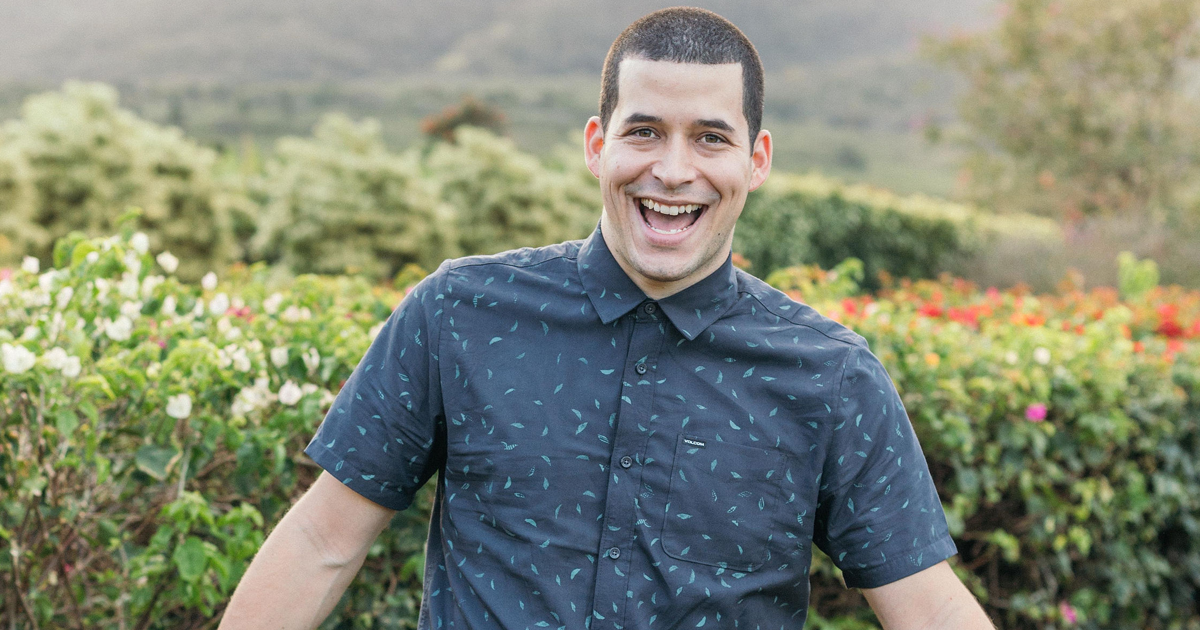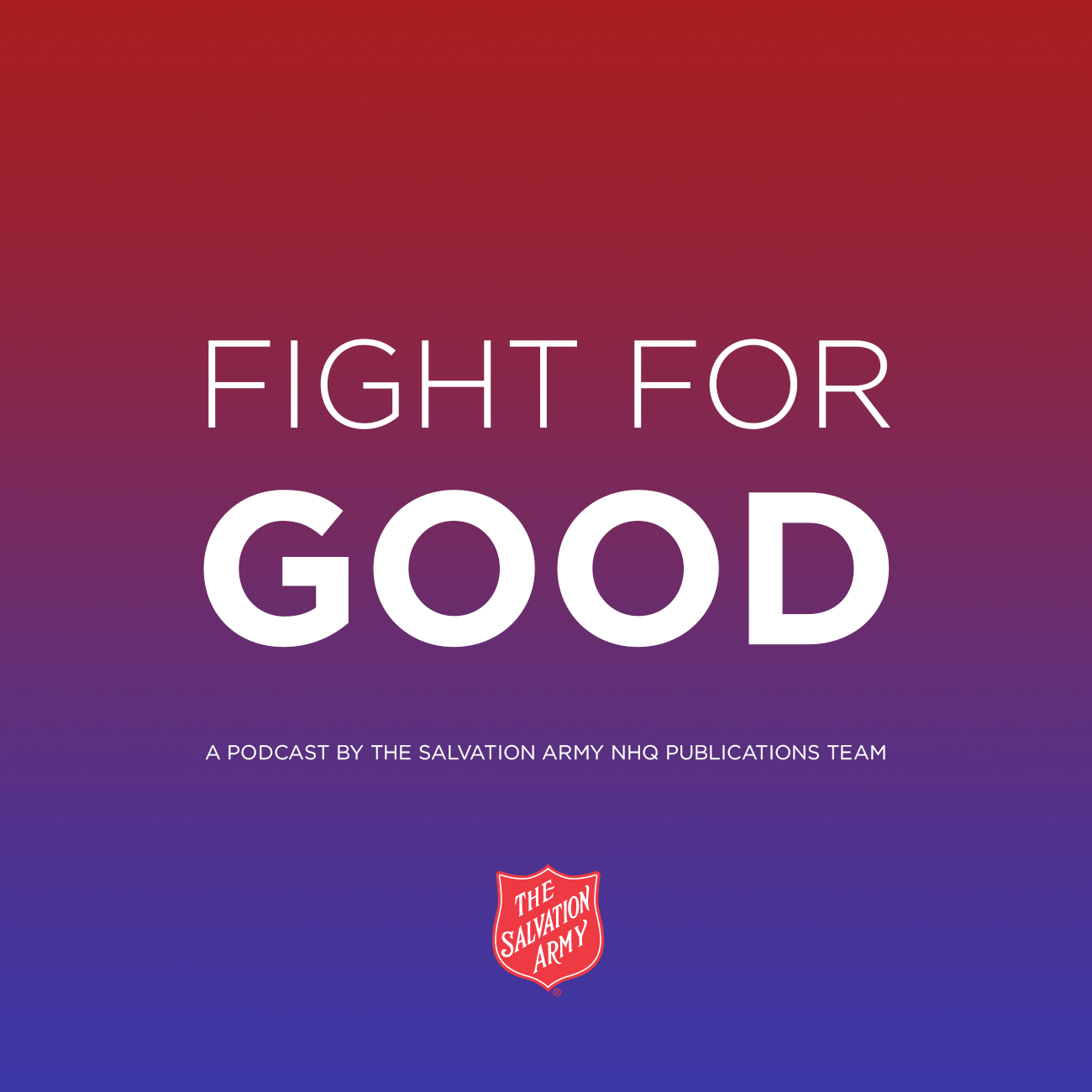Q&A With Jeff Bethke
The “War Cry” spoke to "New York Times" bestselling author, Jeff Bethke, about his new book teaching readers how to let go of the hustle culture.
Jefferson “Jeff” Bethke is a New York Times bestselling author, YouTube star, podcaster, husband and father. His new book, “To Hell with the Hustle: Reclaiming Your Life in an Overworked, Overspent, and Overconnected World,” teaches readers how to resist the “hustle culture” and embrace the slowness of Jesus.
In an interview with millennial writer, Michele Katsaris, Jeff talks about his new book and the impact of the “hustle culture.”
Tell us some background about this book. Why this topic specifically?
A lot of the inspiration actually came out in the first chapter of the book. The story about me and Alyssa [Jeff’s wife] getting into an argument and hitting this point in our life where we felt like we were living “the American dream,” doing all the things we should have been doing such as getting married, buying a house and starting a family. Yet we felt so busy, overworked, tired, burnt out and lonely. It made us go back to the drawing board of like, what is this, why is this and kind of compare like cultural value system with the Lord and what He has for us.
Was it difficult writing about this? Or was it fairly easy once you started writing?
Writing a book is never easy at some level, that’s for sure, but I think what made it easier was just knowing about the subject. There was some life circumstance that definitely made it feel easier too because I was writing what I was learning.
You talk about your fight with Alyssa in the first chapter and how you are complete opposites. You’re one to say, “yes, yes, yes,” while she says, “let’s slow down and think about this.” How do you find a balance between the two?
I think the balance is just to enjoy each other. That is one thing I always tell people, especially in a marriage, you have to see each other’s weaknesses as their actual strength because that is what they are. There are ways that God wants to round you out and make you a fuller, newer person and we have definitely applied that in our marriage.
You mention in a part of your book where you talk about finding a job that people want to find jobs that meet their parents’ expectations yet is cool enough to tell their friends about it while fulfilling what they want as well. How did you feel that type of pressure growing up?
Good question! That was actually a quote, from a Buzzfeed article called “The Burnout Generation” and I recommend people to go read that article all the time. They reference how the standards are impossible now because we have to please our parents, it has to be a cool enough job for our friends to think it’s really cool and then also like be fulfilling for us. These standards weren’t really around fifty-years ago. No one cared if their job was “cool” as much as they do now. It’s just a lot of pressure from everywhere.
And on the other side of that you’re also a parent yourself– how has your knowledge of the hustle culture influenced how you raise your children?
I think the biggest thing is no one ever does anything loving, kind or gentle when they are hurried. We don’t tend to live in a gracious way when we are really hurried and hustled, and I’ve noticed that the more I can step in Jesus’ pace, into His cadence and His way of doing things, the more that I will be able to lean into just being a better and loving parent.
At what age do you feel like your “hustle” started?
Definitely right after college. There’s this timeframe where you feel pressure pretty powerfully, and instead of trying to figure out what we want, we start to do a bunch of things and not really realizing that we may be overdoing it. I think that is the time to realize like, we are not really created for this.
Do you feel that is the time that people start their “hustle” because school doesn’t really prepare them for the outside world?
I think so. I think our culture is different and it’s not that we’re not prepared for the outside world, I actually think we’re not prepared for the inside world. We don’t prepare ourselves for what it takes to live stable, healthy and flourishing lives. We do prepare for the outside world by doing this and doing that, but we’re not anchored enough. We’re not finding enough meaning in our relationships. Then we become out of sync and out of tune with the external part of who we are and that’s where a lot of the disillusions come from.
Do you think social media affects this new wave of “hustle culture?”
Yeah, I do. I don’t think social media is wrong or bad, just like our phones aren’t inherently bad. It’s not inherently evil, but we do have to ask ourselves what they are doing to us. That is the question I put in the book a lot is, “Who am I becoming by the practices I am doing?”
In your book, you mention that people worship these celebrity icons as if they are “Gods.” It’s hard to compare yourself to a celebrity though, there’s only one Beyoncé, and there’s only one you. What is your biggest piece of advice to the younger generation to avoid this “hustle culture” all together?
Yeah, that is where the second half of the book comes in. It’s like, “Man, we have to have resisting practices like Sabbath, silence, all these things that are actually actively pushing against it and that is what I think it becomes really, where then you can live in it, but not of it.
To the other end of that, in the same chapter, you mention attending events such as Coachella and how events like this can be misleading, but what if someone genuinely enjoys those things?
I think there’s a spectrum, you know. You have to ask yourself why you want something and what you think it’s going to give you at the end of the day. You can totally enjoy a music festival but know that there will be some crazy and not-so-good things going on, but if you can stay true to yourself and enjoy the music and friendships that come with it, then you’ll be fine.
The Salvation Army work with a lot of people who are close to or already in poverty, and kind of don’t have another choice but to work and hustle just to survive. What is your advice to those who can’t really “take a break?”
I get it. I was raised by a single mom who had to work multiple jobs, welfare
Community allows us to live in rhythm even if we are living in
And when you guys are going through all of that, how much does your faith help slow you down and guide you?
I think that’s the whole point, is to slow down and rest on Jesus by asking Him what He cares about and what He wants. I think that is the main thing that forms everything else. When you start to slow down and actually walk with Jesus at His speed and His cadence, then you can start to see a bunch of things through. And I think that is really the whole purpose of it all. And whatever you point your eyeballs at, whatever you point your heart at, whatever you point your life at, you begin to become like that. You begin to be formed in that image. You begin to be formed to that cadence.
And so, it’s no coincidence that social media’s fragmented, splintered, and fractured stuff also basically works to describe our hearts now because you become what you like and become what you worship. I don’t think it’s wrong, but I do think it starts to kind of be really problematic in the long run.
What was your favorite chapter of the book?
I believe it was chapter 6 or 7, it was a fun one to write. It was the most vulnerable and hardest one to write. I think that is just a really fun conversation that not a lot of people are having so that was one of my favorite chapters.
Connect With Jeff
Instagram | Twitter| Website |YouTube








